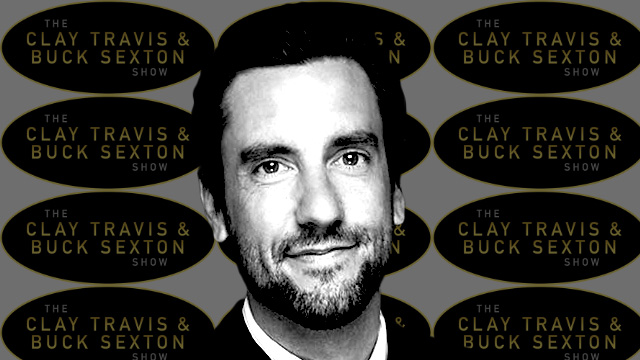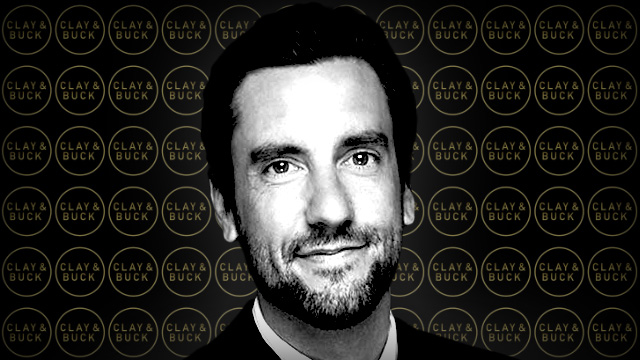Governor Ron DeSantis
13 Dec 2021

Wonderful to speak with the wildly popular Florida governor, whose success is based on implementing conservatism. His commonsense policies, including getting the Constitution back into the classroom, make him one of the most important elected Republicans to watch:
RUSH: Hi, Governor. What’s shaking, what’s happening, what’s up?
DESANTIS: Happy New Year.
RUSH: Same to you. I’m really glad you could make some time to do this, because you need some accolades. You were sworn in a year ago, January 8, 2019. And you are racking up accomplishments. Among Floridians your polling numbers are through the roof. According to the Mason-Dixon poll, you have a 65 percent approval rate. You even have a 40 percent approval rate from Democrats. What do you attribute this to?
DESANTIS: I think a lot of it, Rush, is that as governor, people put a premium on leadership. In the Congress — I was there for six years — you vote this way, you vote that way, you give interviews; whereas as governor, you actually can get things done. I laid out a series of promises during the campaign, I got elected, and I actually went about fulfilling what I said I was going to do. I think too few people who get elected to office follow through. I think the President’s been one who has, but obviously a lot of people who get elected at various other levels don’t.
For example, we said we’re going to ban sanctuary cities. We came in and got the legislation through to ban sanctuary cities in the state of Florida. We said we’re eliminating Common Core, so we went ahead and eliminated Common Core. We now have a replacement. We’re not going to have the funny math and all that.
RUSH: Hang on just a second. You’re glossing over this like it’s just checkmarks. Getting rid of Common Core was not that easy. What was involved?
DESANTIS: A lot of it was just being willing to accept the criticism from some of the quarters who have been involved in pursuing that. But we looked at it and said, “This is something that really has massive dissatisfaction throughout the citizenry.” Conservatives like you and me don’t like Common Core, but really it goes much beyond that. You have parents who have advanced degrees in math, and they can’t figure out how to help their kids with the math homework because of the crazy Common Core stuff.
One of the things we’re doing, though, in replacing it, is we’re putting a big emphasis on setting requirements for knowledge of the Constitution and American civics. You’re going to see seniors in our high schools having to take a civics exam. It’s modeled after the citizenship exam but will likely be more extensive than that, because we’re graduating a lot of people now in the younger generation who really have very little understanding of the core principles that make the country great that are reflected in the Constitution and the Bill of Rights. That is something that is totally new. So we’re moving away from the failed Common Core and moving back towards some of the tried and true ways of education but with this new emphasis on the Constitution and civics.
RUSH: I want to get into that in more detail, but I still have a question about this because it couldn’t have been easy, because you have the same opposition from the left that any other conservative Republican is going to have. And I want to tie it to the next question. Your polling data is undeniable. But there’s a press blackout on you, Governor. Just like any other successful Republican, they are not touting your achievements. So how do you think Floridians are learning of your successes and of your achievements and of your promise-keeping? How are they learning about it in order to acknowledge it in the support you’re getting in the polls?
DESANTIS: Because I get out there and I travel the state, Rush. I’m in every corner of the state multiple times. We tracked my first year in office the total number of events we did. And just on the official side — so it doesn’t even count going to a Trump rally or doing anything politically — we did over 250 to 300 events. Almost every time I’m willing to take questions from the media. You go places, cameras show up, people see you out there working hard. So we basically have done it with a lot of hard work.
Now obviously, you do it for the substance, so I’m not really focused on whether I get credit or not. But I knew going in I was not going to be getting any type of positive treatment from some of these national outlets. I was Public Enemy No. 1 in 2018 in terms of the candidates they wanted to see defeated, because Florida is an important state and the President had endorsed me. So they really wanted to see me lose, and they did everything they could to do it. We knew that going in.
But I also knew that people can see if you’re a leader or not, and I’ve gone around and led. I think they see me leading with purpose and conviction and I think that they’ve responded positively as a result. I wish I had every Floridian on Twitter or email, but it really does involve me getting down to Fort Myers, going to Orlando, going to Tampa, down where you are in the Palm Beach area. We’ve been everywhere multiple times pushing our agenda and then tending to the needs of the state.
RUSH: Whatever you’re doing, there’s a lesson. You’re a series of teachable moments for any other Republican politician. You’re getting things done, you’re going down the checklist, you’re fulfilling your promises. These are not insignificant. Getting rid of Common Core and the sanctuary city stuff is not insignificant. You’re doing it, and your poll numbers are through the roof on it.
Let’s get to your civics push. Before I learned of your initiative, I saw a story in The [uk] Telegraph about American young people between the ages of 16 and 24; 70 percent had never heard of Mao Tse-tung; 40 percent had never heard of Joseph Stalin. I said, “I’m not surprised; communism is not being taught. If it is being taught, it’s being romanticized.” Shortly afterwards I was at a charitable golf tournament for a local school here, and some of the students were on the tournament, 16- and 17-year-old kids. I did my own little survey: “You ever heard of Mao Tse-tung?” None of them knew who he was. One said, “Isn’t he the Tiananmen Square guy?” Joseph Stalin, they had no idea. This is an elite private school.
Then I saw your initiative. Of all the things you’re doing, for the reasons you just said, I think this is one of the most important. Because you nailed it. Young people for I don’t know how many generations now have not been taught of the incredibly extraordinary aspects of our Founding and why America is exceptional, why it’s special, why it’s unique.
Not that we’re better than anybody — but what is it that has enabled this massive superpower in less than 300 years, versus nations that have been around a thousand years? And how do we sustain it? I think it’s been purposely ignored and not taught in schools. So for you to come along and make it part of the curriculum in Florida, that’s hand-dance time. It’s wonderful that you’re doing this.

DESANTIS: It is important, Rush. We don’t have the same religious denominations. We’ve got people that have different ethnic backgrounds. And that was really true even at the time of the Founding. You had Anglicans, Presbyterians, Catholics, Jews. For that time, you had a pretty eclectic mix, and you had never really had a society that was built with that kind of amount of diversity. So what they looked for were these fundamental truths — about individual freedom, about our rights being endowed by God, not coming from government, and then the proper role of government being limited and helping us protect the rights that we already have and maintain and create a just society. So those have stood the test of time.
The Founding Fathers were just a cut above — go back and read Alexander Hamilton and the Federalist Papers or Madison or Washington. Could you imagine what it would have been like creating a Constitution if you had people like a Joe Biden or an Elizabeth Warren involved with this? We’re really fortunate to have had people of intellect and leadership. They were right about so many things and have been proven right time and time again.
And their ideas are what has marked every major success in American history. Lincoln went back to the Founders; Martin Luther King went back to the Founders. Reagan, when he was fighting the Soviets, went back to the Founders. This is something that’s really significant. When you’re in a society based on those fundamental truths, and you’re graduating people who really don’t have any experience with the Bill of Rights or the Constitution or any of these things, how are they going to be able to discharge the duties of citizenship?
I think you’re right that there’s a whitewashing — the failures of leftism through the 20th century were horrific, with a body count of 100 million people from communism alone. But with that there’s also I think an affirmative effort to denigrate the Founders, and to act like the Constitution is defective and is a flawed document and really shouldn’t guide our affairs anymore.
The goal is to have leftism be the founding principles of the country. That’s what they would like to see. Some American history classes don’t even begin until the progressive era at the beginning of the 20th century. They don’t care about Washington, Hamilton, Lincoln, none of that. They just start with progressivism as the core of the country. Look, you should teach the progressive movement because that’s obviously been important. I think a lot of bad things have come from that, but nevertheless it’s been there. But obviously you need the foundation. I mean, come on! How could you not have that?
RUSH: Especially when we have so much immigration, some of it legal, some of it illegal. Many end up in the Florida school system. And there’s no replacement for having people learn, as you just said, the basic foundations of the structure of this country. Madeleine Albright, the Clinton Secretary of State, teaches that America is an accident. It was a confluence of certain people at a certain time; there’s nothing special about America. She’s teaching this at Georgetown University. She’s not alone. You’ve got people who teach the Constitution as a charter of “negative liberties” because it doesn’t spell out what the government can do. So I think what you’re doing is phenomenal. Is this going to be a graduation requirement and at what grade level?
DESANTIS: It may be. I think it’s going to be senior year because they are turning 18, and they’ll be eligible to vote. What foundation are you bringing to that important aspect of citizenship? But we want to just figure out where we are and how bad it is, and then see what we need to do from there. We may eventually make passing it to be a requirement.
At the same time, Rush, it’s not necessarily the students’ fault. There’s been a big move away from this over the last generation. A lot of them probably don’t have the knowledge they need, but they may never have been taught in a fair and factual way. You can graduate from some universities with degrees in history, political science, and not have to take anything about American history or the Constitution. I think academia at the university level has really lost its way. That has filtered down into making civics in our K through 12 a real lost art.
RUSH: And you can graduate journalism school without having to have any specialized education in history. How can you become a decent journalist without American history? John Silber, when he was running Boston University back in the 1990s did a survey of the most popular high school textbooks. He found that the longest reference to Abraham Lincoln back then was one paragraph, and Bill Clinton was getting pages.
DESANTIS: [Laughter] Yes. You mentioned people immigrating to the country. Go back a hundred years when we had a lot of people coming; they were expected to know all this. They were taught it. You know what? It worked. You had first- and second-generation people fighting in World War II who became part of a big middle class and really helped make our country successful. Actually, if you looked at someone who was naturalized versus someone who was born here, the naturalized citizens may actually know more about America because they’re required to do that for the citizenship exam. A lot of people who are born here really take it for granted, which is unfortunate.
RUSH: No question about that. What’s the reaction you’re getting from teachers? How much resistance are you getting to the civics requirement and some of the other reforms to education you’re making?
DESANTIS: People do complain, but I think at the same time the silent majority is 100 percent for it, particularly in Florida. Our demographics are such that a lot of the folks here are concerned about not having this in the schools like they did when they were growing up.
RUSH: Speaking of demographics, I saw the other day that Florida is on the way to having more congressional representation than New York state.
DESANTIS: True.
RUSH: Obviously, a lot of people are moving here from other parts of the country, but what is the demographic makeup?
DESANTIS: Well, we skew older than some of the other states.
RUSH: God’s waiting room, yeah.
DESANTIS: There you go. But also, and this was actually just in Bloomberg, after the tax bill was signed, we had $16 billion worth of adjusted gross income move into Florida, which was three or four times any other state. I think we’re a landing pad for people who are being kicked around by these high-tax states.
Here are a couple interesting facts. One, we’re going to have probably two more congressional districts than New York state after the next census and reapportionment. That would mean two more votes in the Electoral College than New York state has. In 1960, New York had I think 45 electoral votes; Florida had 10. Now we’re going to have 29 members of congress, 31 electoral votes; New York will probably be 25, 26, somewhere around there. Get this. We have a larger population than New York state, but our budget is half of what New York state’s budget is.
RUSH: That’s just amazing.
DESANTIS: In fact, with 21 and a half million people, Florida’s budget is less than just the budget of New York City. People there are getting taxed every which way from Sunday. Are they getting better services and quality of life? The infrastructure in New York is way worse than Florida. They pay all those tolls; where does the money go? People look at the taxes, it stinks, and adding to the frustration is wondering how much of that money is just frittered away.
We take our fiscal obligations very seriously. We’re one of the top five states in the country for fiscal health, according to George Mason University. And we’re increasing our budget reserves. We’re over $5.3 billion in all our reserve accounts, which is important. The economy is good, but these things are cyclical. At some point we’ll have a slowdown. We’re prepared for that.
Other states keep digging themselves in the hole. They’re having trouble now, and the economy is good. Just imagine if there’s a slowdown. How are they going to be able to make it work? They won’t. I think the President is going to get reelected, but if you were to have a Democrat trifecta with a President, Senate, and House majority, I bet some of these states like Illinois would go to the federal government and try to get a bailout.
RUSH: I’m surprised that that hasn’t happened yet. Two questions. One, how in the world have all of you in government resisted what has undoubtedly been pressure over the years to institute a state income tax?
Second, with all the people arriving from New York and the Northeast, many of them are bringing their politics with them. They will vote for the same policies and people that created the mess they’re leaving. Talk about high spending — the people coming here voted for the people who do that, and they kept re-electing them. I know you’re aware of the phenomenon of “snowbirds” fleeing disaster and then recreating it in the states they relocate. With this expectation of big government and spending, how do you forestall the demand for a state income tax?
DESANTIS: If you look at the mix of people coming down, there’s a lot of focus on New York, which obviously is a big feeder. People are also coming from the Midwest. A lot of them go to places like Naples and Fort Myers on the southwest coast of Florida. Look at the election returns from those areas in my election and Trump’s election. Those are probably three or four to one, Republican to Democrat.
Obviously, there’s a mix of people from the Northeast, but as a whole the people who come from the Northeast are more Republican than the states they’re coming from. It skews more in favor of us because I do think the bad policies have really registered with a lot of people.

RUSH: I hope you’re right.
DESANTIS: It’s not even just paying the taxes. It’s trying to do anything business-wise. Trying to start a business is very, very difficult to do. If you look at the voter registration numbers just since my election, we’re doing better than the Democrats in terms of the new registrations. I think part of that is because of the phenomenon that we’re talking about where people are just fed up.
So I don’t think there’s a lot of pressure to do a state income tax. It’s not only about having to pay the money — obviously, they don’t want to do that. But not having to file a tax return just makes your life so much easier. So trying to propose that is the third rail here. We’ve got a strong super-majority of people who oppose a state income tax. Even people who wouldn’t have to pay it understand we have a lot of wealth coming into the state, and it’s not purely because we have nice beaches. That is part of it, but it is because bad policies are driving good people out of some of these states. And they’re coming here and investing and saving.
I mean, heck, Rush, how much have you saved coming from New York when you moved to the eib Southern Command? But then how much economic activity have you engaged in here? Multiply that by all the different people who do this — at varying scales, because obviously not everyone who comes down here is able to charge the same obscene profits [laughter] that you can. But still, it’s good while the getting’s good.
That is really what people understand in Florida. Bad policies are hurting a lot of people in other states and people are looking here. So I want Florida to be a beachhead of freedom for people who are sick of big government, who want to come to a place where the government is going to do what matters but will not overtax them or waste their money.
RUSH: I happen to agree with you that Trump is going to get reelected. I’d say odds are 70/30 or maybe even better. But to counter my own question about the influx perhaps of leftists corrupting the state, I saw something the other day that I don’t know if I can believe. It was kind of a throwaway line in a story about the Presidential race, that both Florida and Ohio are now pretty conclusively red, that they’re not the toss-up states, Presidential-election-wise, that they have been in the past. Is that true? Is Florida a “red state” now, without any question?
DESANTIS: Look, we’re a competitive state. I do think Republicans have an advantage. Part of that is because at the state level we obviously have done some good things over the years, even before I got here. And with the mix of people coming, I think we are definitely a center-right state. We’re competitive enough that in a bad year (and 2018 was generally a bad year for Republicans; we lost the House) we were able to win in Florida even facing some headwinds, which I think is a good sign.
Ohio is not a swing state with Trump on the top of the ticket. If you had a Romney-type Republican, a more establishment type, then Ohio would be more competitive. Trump is somebody that the average working person feels like, “This guy’s got my back.” That helps him in Florida, but it really helps him in Ohio. I think Ohio is totally off the map.
I think the President’s going to carry Florida, but it’s never that easy here. So we’re going to be working hard. Like you, I think he’s going to win overall. But even if somehow he didn’t win the Electoral College, maybe didn’t win Wisconsin, I still think he would carry Florida, which just shows you we are leaning to the right. I’d like to get it to where we’re even stronger, but I think we have come a long way. Bush versus Gore in 2000 was 500 votes; Trump carried it by almost two points, and I think he has a chance to do better than that this time.
RUSH: People should know that you and President Trump have been friends for a long time. He’s had a special interest in your political career since he began his. He’s made the state his official residence after all these years in New York. Given what you know about him, you know that the caricatures of him are largely untrue, to say it in the politest way. With this impeachment going on, how do you think he’s weathering all this? It appears to me that he is slam-dunk triumphing, and that his opponents are just flailing away. But you’re in the thick of it, you’re in the political business. How do you see it?
DESANTIS: I think you’re right. First of all, he weathers the flack better than anyone I’ve ever seen because he takes the flack unlike anyone has ever had to take it. He gets it from all comers 24/7, online, the elite media, Hollywood. All these institutions from the day he got elected have been arrayed against him. They’ve opposed other Republican Presidents, but I think this vitriol is at a level we’ve never seen. You had the whole collusion thing, which obviously was a nothing-burger. Now they’re trying to do the Ukraine. I think it’s blown up in Pelosi’s face. It’s not going anywhere. We really knew that from the beginning.
He’s putting points on the board. Not being a conventional President makes it so much better to work with him, as a governor. He’s done so much to help us with hurricane recovery. The Panhandle got hit in 2018, a Category 5 in Panama City, and he’s been so generous with the recovery efforts, against the advice of a lot of his staff members and some of his agency folks.
He’s done stuff for us with all our water flow issues in southern Florida, helping us with infrastructure. He’s done a lot for prescription drugs; he’s trying to break up the old order. We basically underwrite drugs for the rest of the world. He doesn’t like that. We’re doing a pilot project in Florida to be able to have access to some cheaper drugs in foreign countries.
He’s willing to just do things because he thinks it’s the right thing; whereas, if you had a conventional President, I would basically be talking to some deputy chief of staff and no decision would ever be made. It would basically be trying to muzzle him. You can call him, tell him what the deal is, and he’ll say, “You know what? I’m with you. Go ahead.” And you can take it to the bank.
When he tells you he’s going to do something, he will follow through with it, even when some of his staff try to reel it back in. If he said he would do it, he stands by it. So we’ve been able to work together. I probably have been the most productive governor working with the White House on all these different issues, and so it’s really been good. From our state’s perspective, I don’t even care if you’re Republican or Democrat, he definitely has been able to deliver for Florida, and I think there’s a lot of things he’s going to be able to do going forward.

RUSH: Well, congratulations. You are doing a phenomenal job and everybody in this state that pays attention is ecstatic and very happy that you won. It goes along with something you said earlier. You’re there and you’re working every day and you’re doing what you said you were going to do, but you’re not in people’s faces.
People in Florida are not confronted with government every day. It’s out of their lives as far as they’re concerned in terms of being an obstacle or an obstruction, and there’s nothing better that anybody can say about your regime than that. And that’s a significant achievement.
DESANTIS: One of the reasons we’ve been able to do that is because when I first got into office, I had the ability to replace three liberal Supreme Court justices with three conservative justices. Our court here in Florida, as you remember from things like Bush versus Gore, had been a very activist court with a liberal bent. So we took the court from 4 to 3 liberal to 6 to 1 conservative. We did such a good job in picking the judges that of the three judges I put on the Supreme Court, two of the three have already been promoted to the 11th Circuit Court of Appeals by President Trump, which is great because they’re great justices. But in terms of our agenda, I have two Supreme Court spots to fill, probably by the end of January, beginning of February. That’s going to be very, very important.
Rush, you’ve been very keen on this over the years, but courts have a role to apply the law as written. They cannot rewrite the law or Constitution. They’re not legislators. We need people in the mold of Justice Thomas, and that’s what we’re looking for.
RUSH: You have made more than 50 judicial appointments across the state in addition to the state Supreme Court. Taking that margin to 6 to 1 could be a precursor to what might happen on the second term of the President. I can see a 7 to 2 Supreme Court for him. These reforms are the kind of things conservatives have been dreaming about, hoping for, for two generations. And now you’re doing it in the state of Florida, and it’s having a positive impact. I hope you’re proud because you should be.
DESANTIS: Look, it’s a great state; you know this. You have the greatest radio program in history. You’re a Florida resident. You’re down at the Southern Command in Palm Beach County. We’ve got so many good people. A lot of it is if you have the right policies, the state ends up being successful because of the people that we have here — because they’re allowed to realize their dreams and make the most of their God-given talent. I’m smart enough to know when government needs to just get out of the way, and that really is key.
But it really is a privilege and an honor to be elected governor of this state at this time. We’ve got the Super Bowl coming up in Miami. Next year’s Super Bowl will be in Tampa. Next year’s National Championship game is in Miami. We have golf tournaments, so much going on. And we’re proud to have the eib Southern Command as part of the state of Florida.
RUSH: Thank you, Governor, very much.
Editor’s Note: This interview has been lightly edited for space and clarity.
First photo courtesy of Governor Ron DeSantis; second photo ©2020 Michele Eve Sandberg/Shutterstock; third photo ©2020 TANNEN MAURY/EPA-EFE/Shutterstock; fourth photo ©2020 Manuel Balce Ceneta/AP/Shutterstock
Recent Stories

De Blasio Imposes Vaccine Passport Mandate In NYC test
This is an excerpt that Jaime updated. ffffffffffff

Buck Draws Heat For Speaking Truth About Simone Biles
I just wanted to establish what the current president was saying back on ABC News in March to George Stephanopoulos about his feelings on Governor Cuomo.






